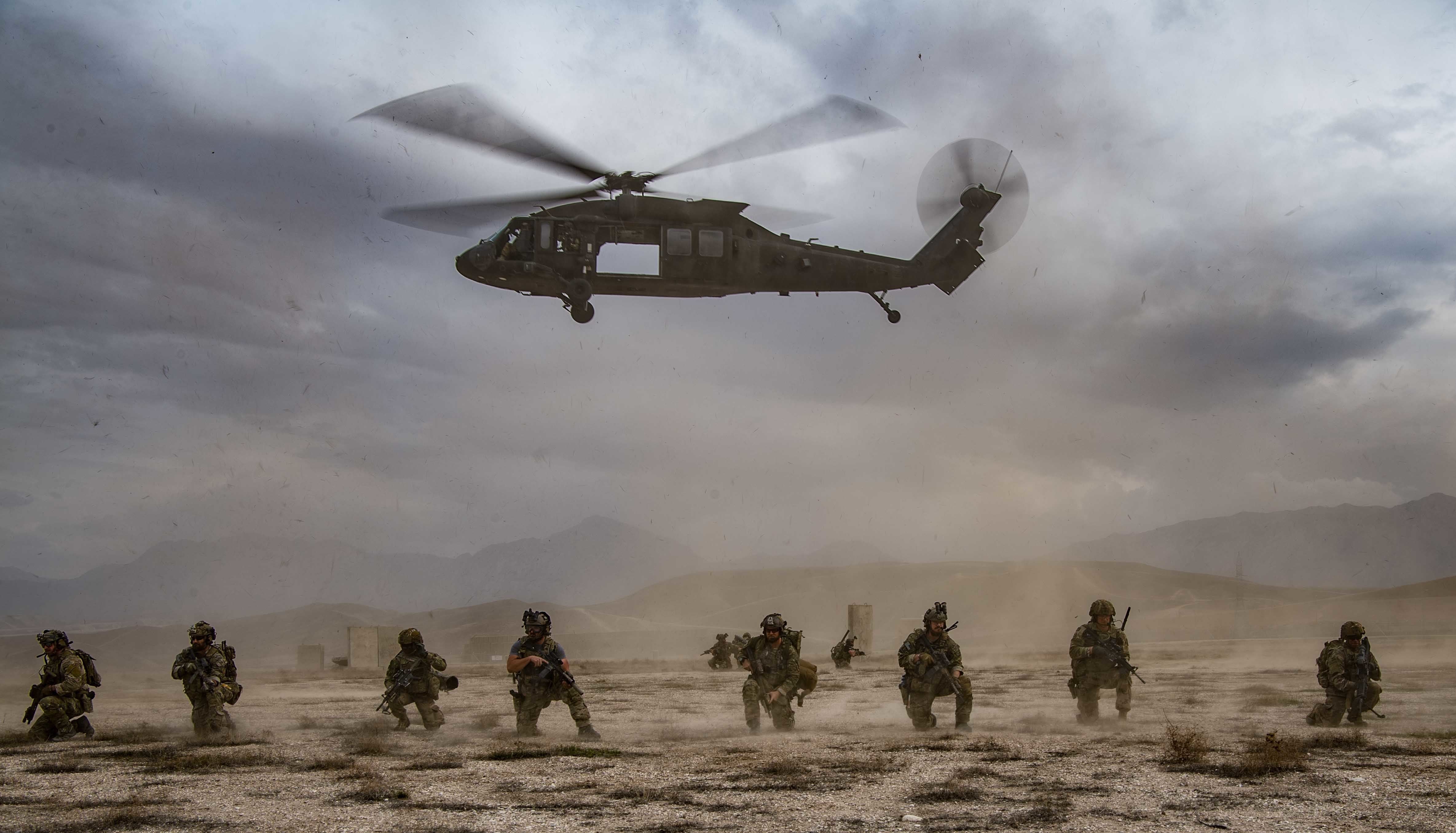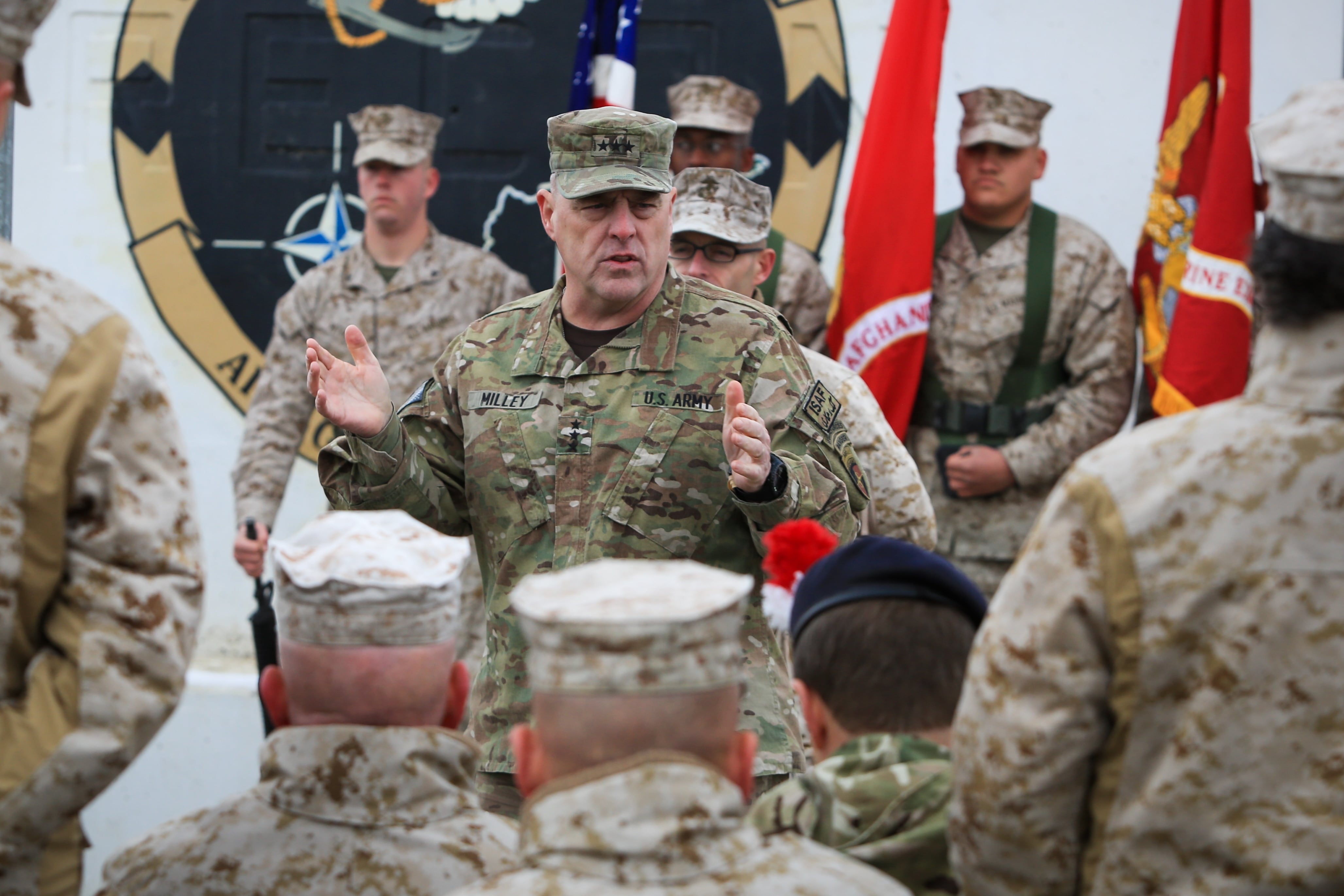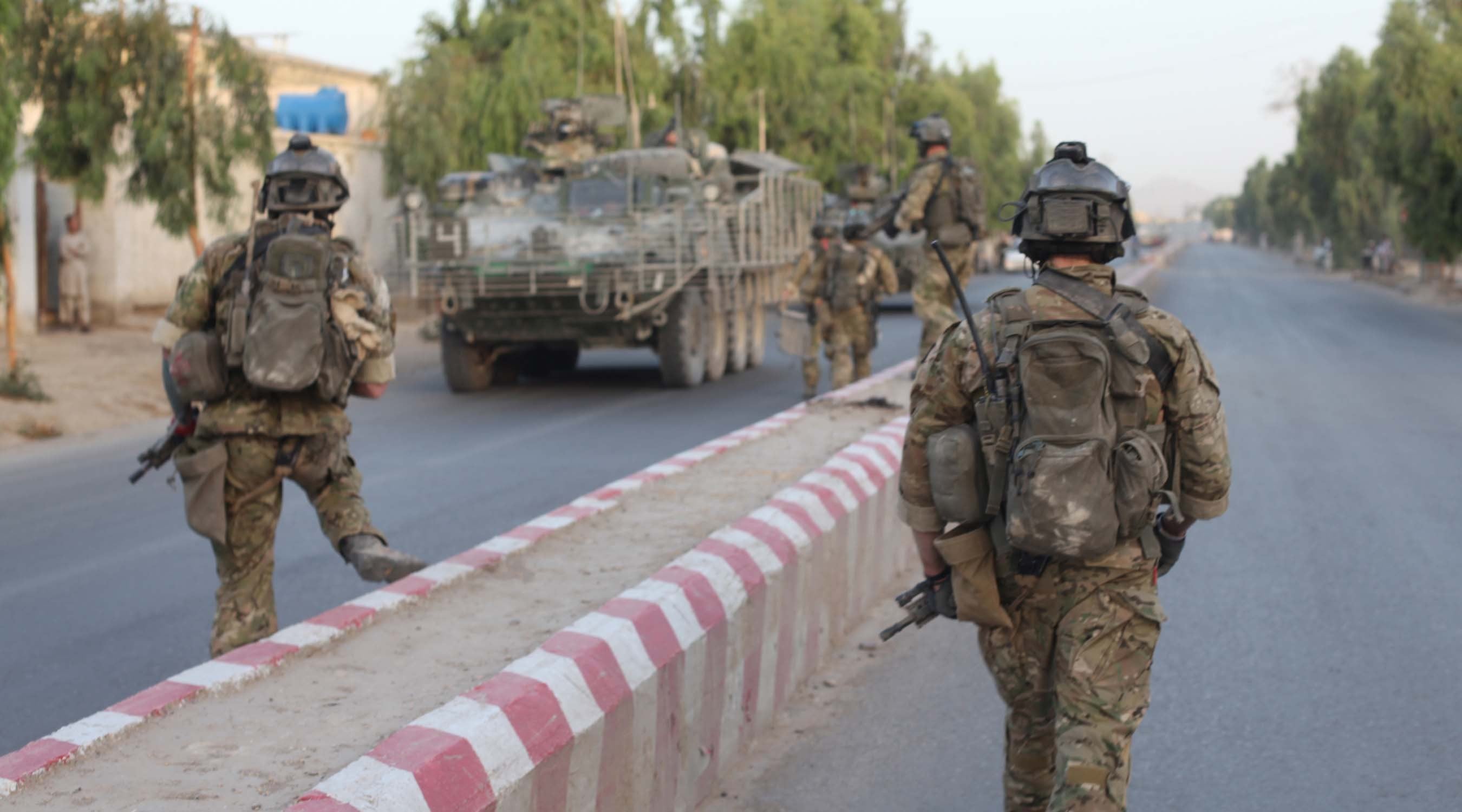Defense officials are vowing to maintain some U.S. troop presence near Afghanistan for counterterrorism operations into the future, but would not say where that force would be based or whether it could be in place before all American troops leave the war-torn country later this fall.
“Those planning efforts are in parallel [with the drawdown], but they’re not linked,” said David Helvey, acting assistant secretary of defense for Indo-Pacific Affairs, during a hearing before the House Armed Services Committee Wednesday.
“We have a substantial capability in the Middle East. We’ll still have the ability to prosecute terrorism from positions around the region. Looking at what that footprint is going to be like within the region is going to be an important part of the equation.”
President Joe Biden has set a goal of removing all U.S. troops from Afghanistan by Sept. 11, ending the American military presence there just a few weeks before the 20th anniversary of the start of hostilities there.
RELATED

On Tuesday, officials from U.S. Central Command said that work is already 6 percent to 12 percent complete, although officials declined to say how many of the 2,500 American service members stationed there in the spring still remain.
Defense officials have also been reluctant to unveil their post-withdrawal plans for the region, promising a regional security force but providing few details. Outside watchdogs have warned that Afghan security forces are likely to suffer significant complications and heavy losses without the physical support of nearby American military troops.
“The terrorism threat will not end with the withdrawal and I’m concerned that we’re leaving ourselves without enough counterterrorism abilities,” said Rep. Joe Wilson, R-S.C. “I’m really concerned that we’re turning the country over to people who have every intent to come back and attack.”
RELATED

Helvey said military leaders will “be able to help to manage and mitigate the threat of terrorism that can emanate from Afghanistan,” thanks to established relationships with the government there.
He also noted that officials are reassessing their force levels throughout the region now, and looking for “areas that are closer in to Afghanistan” for positioning American troops. Helvey declined to name any specific countries that may host a sizable contingent of service members.
He also declined to elaborate on how many U.S. military forces would be stationed at American diplomatic facilities in Afghanistan, saying only that the issue is under review.
Defense officials have promised to provide more specifics in confidential briefings to Congress. But numerous lawmakers expressed concern that the American public doesn’t have a better grasp on what the plan is to keep America safe.
“I want to bring [the troops] home safely, and as quickly as possible,” said Rep. Mike Rogers, R-Ala., ranking member of the committee. “But none of us want another 9/11. We need to understand the plans to defeat these threats to our homeland before they reach our shores again.”
Helvey said that “we’ve learned a lot over the past 20 years in how to address transnational terrorist threats” and echoed comments from Biden that the country needs to work more closely with international partners to root out and eliminate terrorist groups.
RELATED

Several Republican lawmakers took exception to that overview, saying that a more detailed strategy is needed to offset the “hasty” withdrawal of troops. Former President Donald Trump had set a timeline of removing all U.S. forces from Afghanistan by May 1 of this year, but Biden administration officials said the extra four-plus months were needed to complete the drawdown safely.
House Armed Services Committee Chairman Adam Smith, D-Wash., pushed back on that criticism, calling the Biden plan “the best decision in a series of bad options” for the country.
“You cannot tell me that after 20 years, doing the same thing for another one or five or 10 years would have changed anything,” he said. “We would have been asking people to die to not accomplish anything. That’s a really tough thing to do.”
Leo covers Congress, Veterans Affairs and the White House for Military Times. He has covered Washington, D.C. since 2004, focusing on military personnel and veterans policies. His work has earned numerous honors, including a 2009 Polk award, a 2010 National Headliner Award, the IAVA Leadership in Journalism award and the VFW News Media award.





